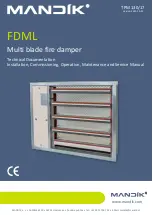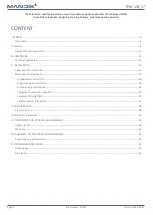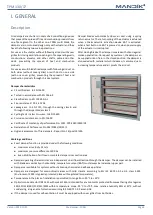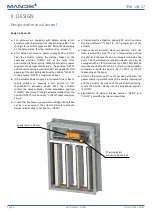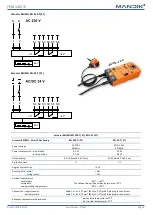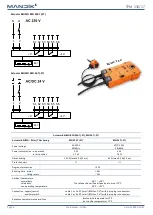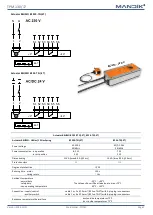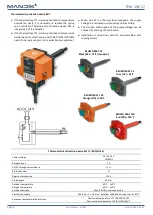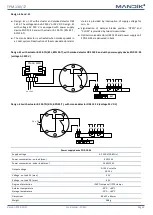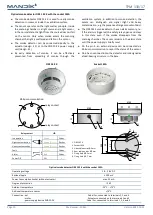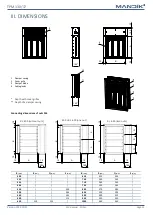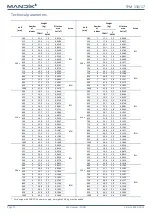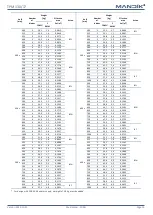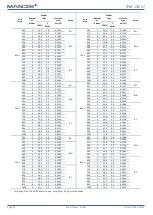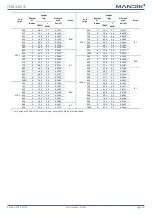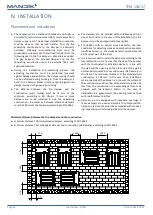
Fire damper - FDML
Page 4
Version 2023-10-31
TPM 130/17
■
Fire dampers are equipped with Belimo spring return
actuators with thermoelectric activation device BAT. The
spring return actuator types are BFL, BFN or BF depending
on the damper size. (Further mentioned as „actuator“).
■
After being connected to power supply 230V or AC/DC
24V, the actuator rotates the damper blades to the
operating position "OPEN" and at the same time
prestretches its return spring. When the actuator is power
supplied, the damper blades are in the position "OPEN"
and the return spring is prestretched. Time needed for full
opening of the damper blades from the position "CLOSED"
to the position "OPEN" is maximum 120 sec.
■
If the actuator power supply is interrupted (due to loss of
supply voltage, or pressing a test button on the
thermoelectric activation device BAT), the actuator
rotates the damper blades to the breakdown position
"CLOSED". The time of closing the damper blades from the
position "OPEN" to the position "CLOSED" takes maximum
20 sec.
■
In case that the power supply is restored again (the blades
can be in any position), the actuator starts to rotate the
damper blades back to the position "OPEN".
■
A thermoelectric activation device BAT, which contains
two thermal fuses Tf1 and Tf2, is an integral part of the
actuator.
■
These fuses are activated when temperature +72°C has
been reached (the fuse Tf1 due to temperature outside
the duct and the fuse Tf2 due to temperature inside the
duct). The thermoelectric activation device can also be
equipped with a Tf2 thermal fuse type ZBAT 95/120/140
(must be specified in the order). In this case, the activation
temperature inside the duct is +95°C, +120°C or +140°C
(depending on the type).
■
After the thermal fuse Tf1 or Tf2 has been activated, the
power supply is permanently and irreversibly interrupted
and the actuator, by means of the pre-stretched spring,
rotate the damper blades into the breakdown position
"CLOSED".
■
Signalisation of damper blades position "OPEN" and
"CLOSE" is provided by two microswitches.
Design .40 and .50
Spring return actuator
Thermoelectric
activation device BAT
II. DESIGN
Design with manual control

